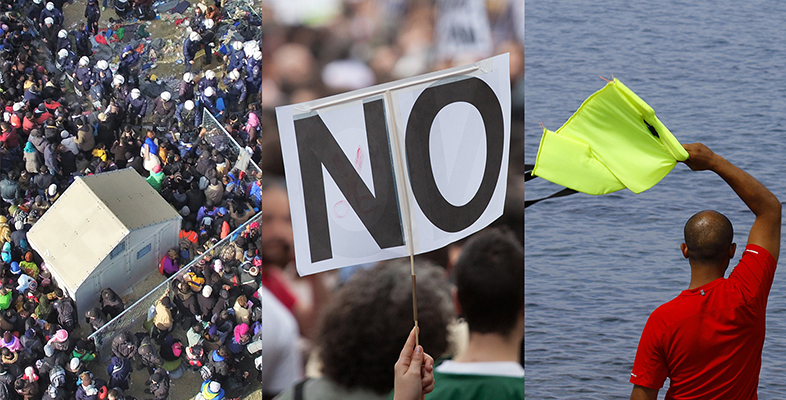2.2 Activism orientation
In 2011, following the massive uprisings that came to be known as the Arab Spring, Time magazine declared ‘The Protester’ as its person of the year [Tip: hold Ctrl and click a link to open it in a new tab. (Hide tip)] . Could anyone be a protester? What is it that makes someone a political activist? To answer this question, Corning and Myers (2002) adopted an individual differences approach (i.e. focusing on the study of personality traits) to study individual political behaviour. These authors set out to develop a way of measuring an individual’s ‘activism orientation’, which they define as:
An individual’s developed, relatively stable, yet changeable orientation to engage in various collective, social-political, problem-solving behaviours spanning a range from low-risk, passive, and institutionalized acts to high-risk, active, and unconventional behaviours.
This definition suggests that each person has a different orientation towards political action, and that this determines how likely they are to take part in political action. Those who are high in activism orientation are much more likely to engage in political action than those who are low in activism orientation. This orientation is developed through life experiences and socialisation processes, and is thought to be relatively stable. However, this is not to say that it cannot change over time, as ongoing life experiences can change a person’s orientation towards activism. Corning and Myers (2002) use the example of going to university, where people may enter new social environments and encounter activists, as an experience that could change people’s orientation towards activism.
